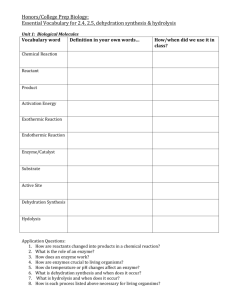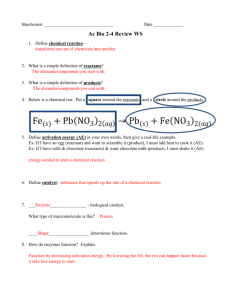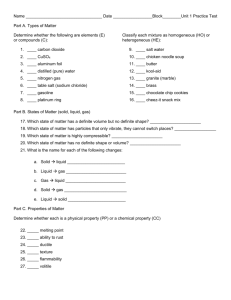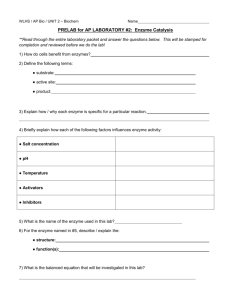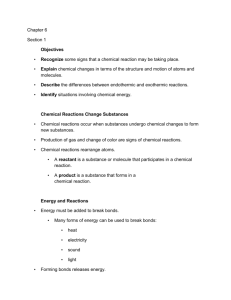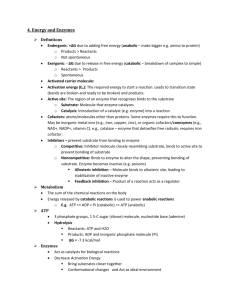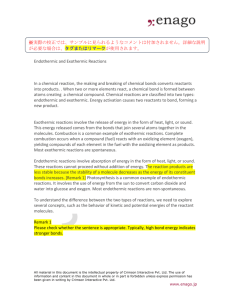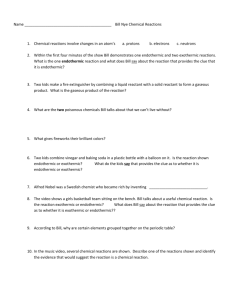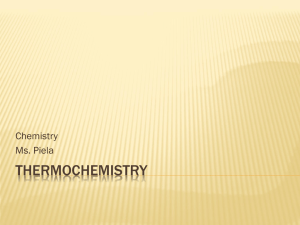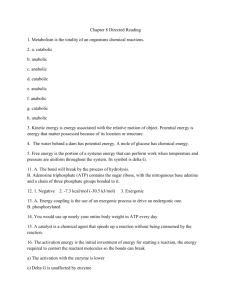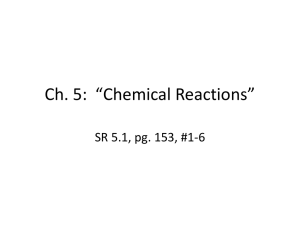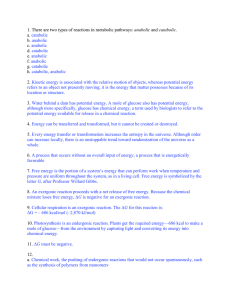Enzymes Rev #1 - Mr. Lesiuk
advertisement
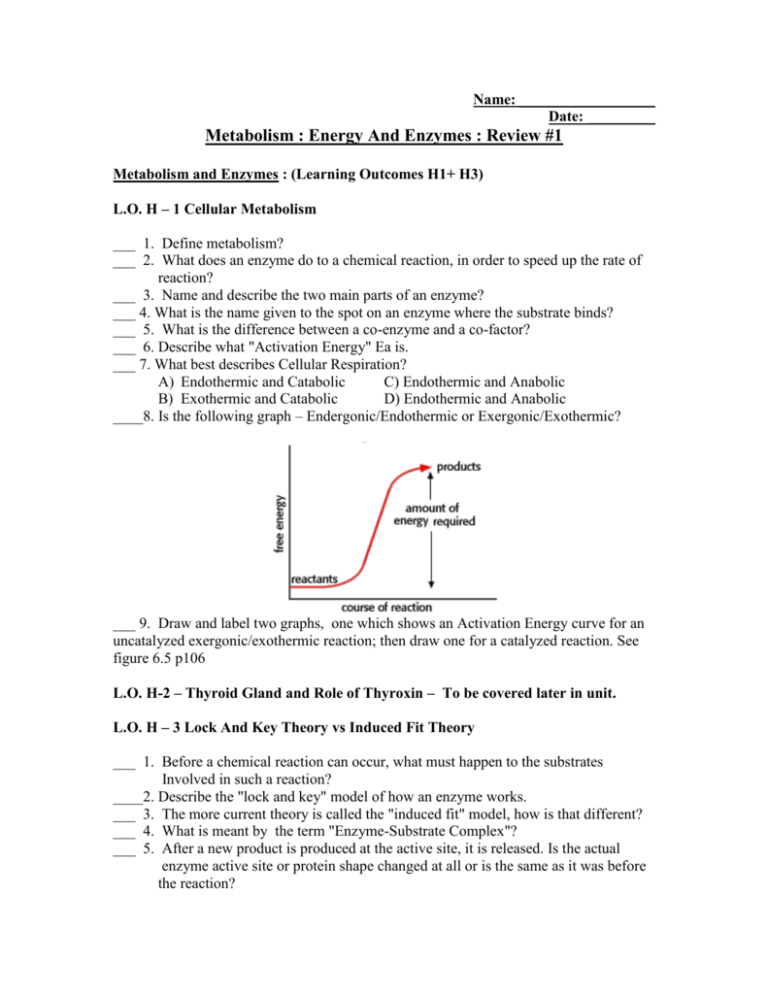
Name: __________________ Date: _________ Metabolism : Energy And Enzymes : Review #1 Metabolism and Enzymes : (Learning Outcomes H1+ H3) L.O. H – 1 Cellular Metabolism ___ 1. Define metabolism? ___ 2. What does an enzyme do to a chemical reaction, in order to speed up the rate of reaction? ___ 3. Name and describe the two main parts of an enzyme? ___ 4. What is the name given to the spot on an enzyme where the substrate binds? ___ 5. What is the difference between a co-enzyme and a co-factor? ___ 6. Describe what "Activation Energy" Ea is. ___ 7. What best describes Cellular Respiration? A) Endothermic and Catabolic C) Endothermic and Anabolic B) Exothermic and Catabolic D) Endothermic and Anabolic ____8. Is the following graph – Endergonic/Endothermic or Exergonic/Exothermic? ___ 9. Draw and label two graphs, one which shows an Activation Energy curve for an uncatalyzed exergonic/exothermic reaction; then draw one for a catalyzed reaction. See figure 6.5 p106 L.O. H-2 – Thyroid Gland and Role of Thyroxin – To be covered later in unit. L.O. H – 3 Lock And Key Theory vs Induced Fit Theory ___ 1. Before a chemical reaction can occur, what must happen to the substrates Involved in such a reaction? ____2. Describe the "lock and key" model of how an enzyme works. ___ 3. The more current theory is called the "induced fit" model, how is that different? ___ 4. What is meant by the term "Enzyme-Substrate Complex"? ___ 5. After a new product is produced at the active site, it is released. Is the actual enzyme active site or protein shape changed at all or is the same as it was before the reaction? ____9. On the diagram below label the following terms -Enzyme (holoenzyme) - Apoenzyme - Active Site - Coenzyme - Substrate A - Product B - Product A - Substrate B 1.__________________ 3._________________________ 2.________________________ 5. 4________________________________ 6. 7.__________________________________ 8._________________________________________ PRACTICE QUIZ:
